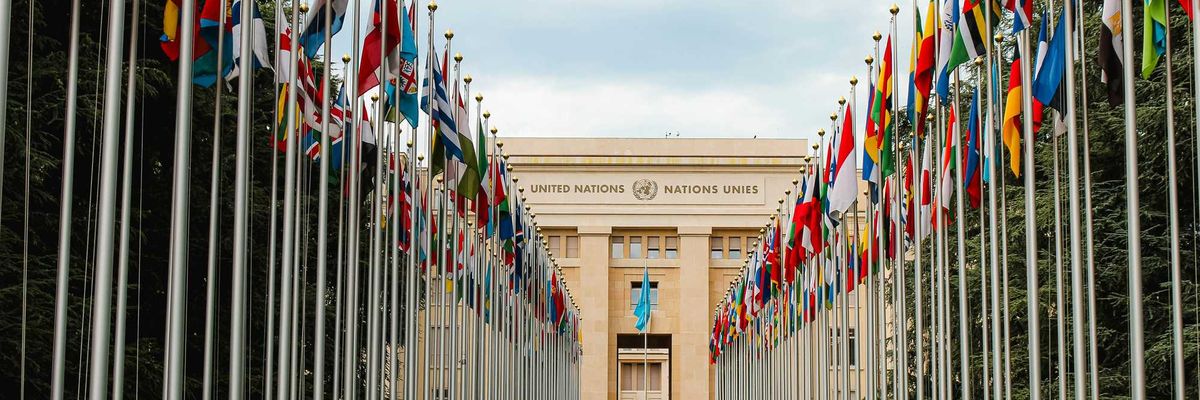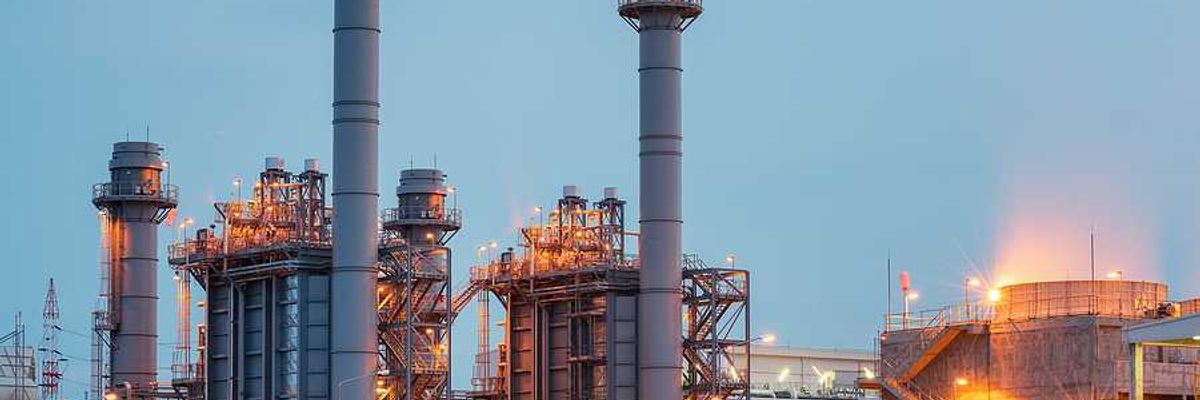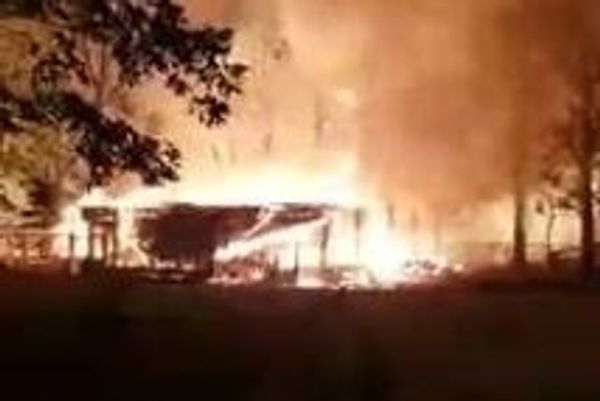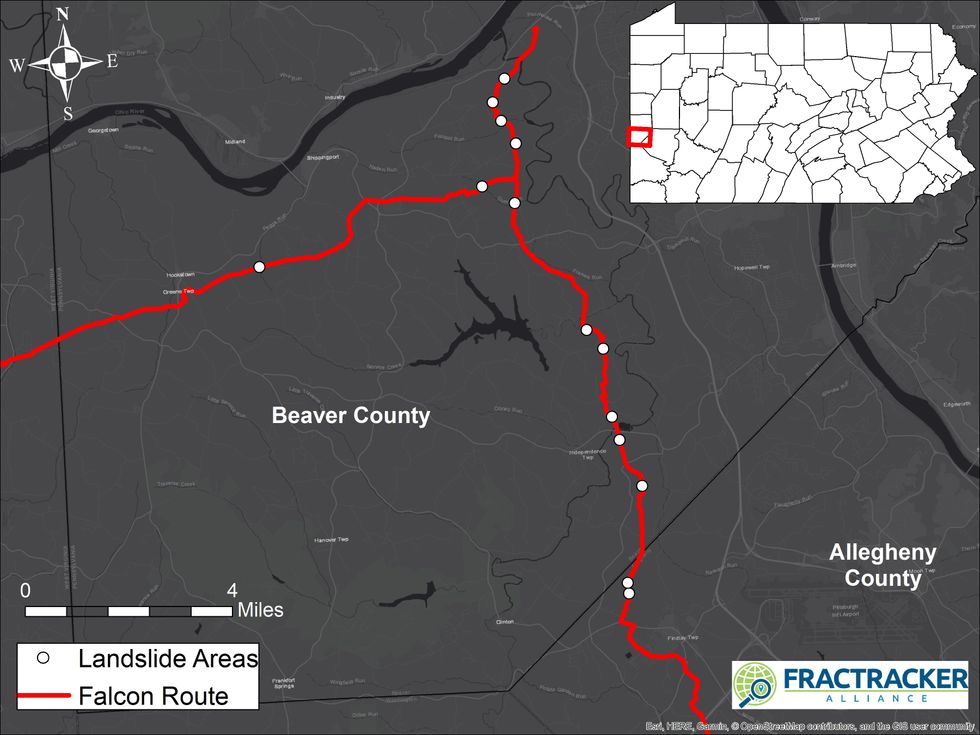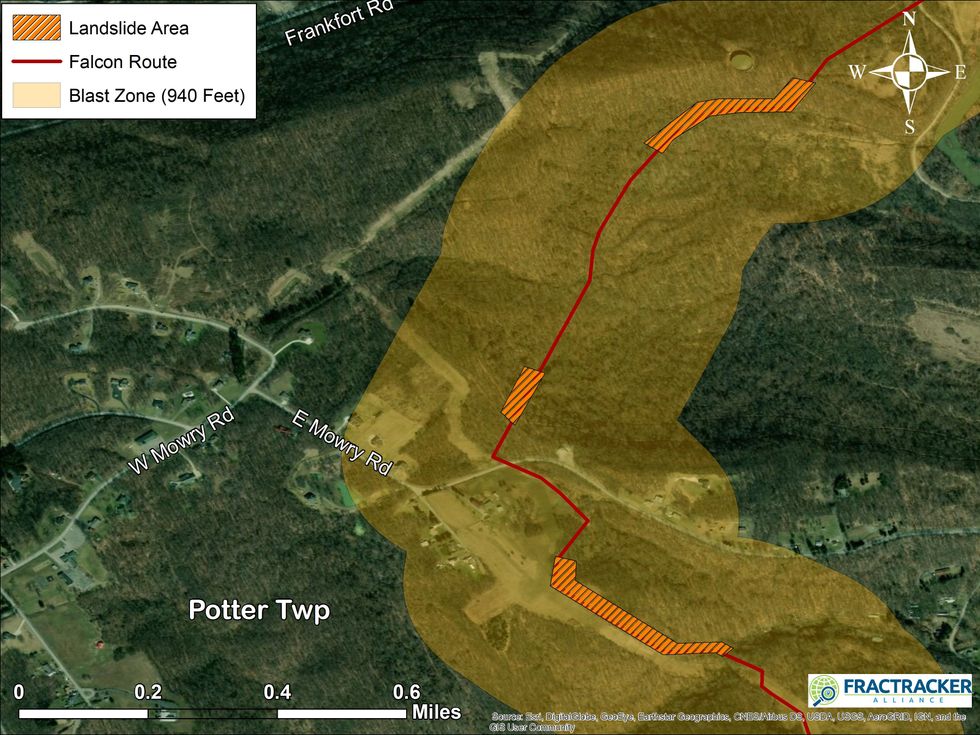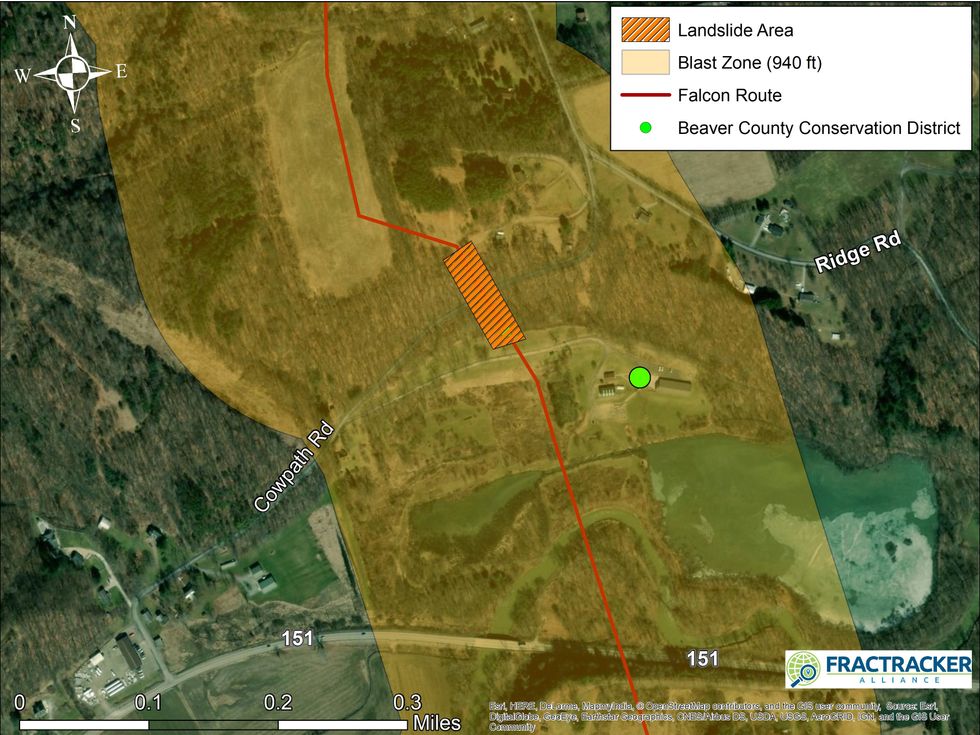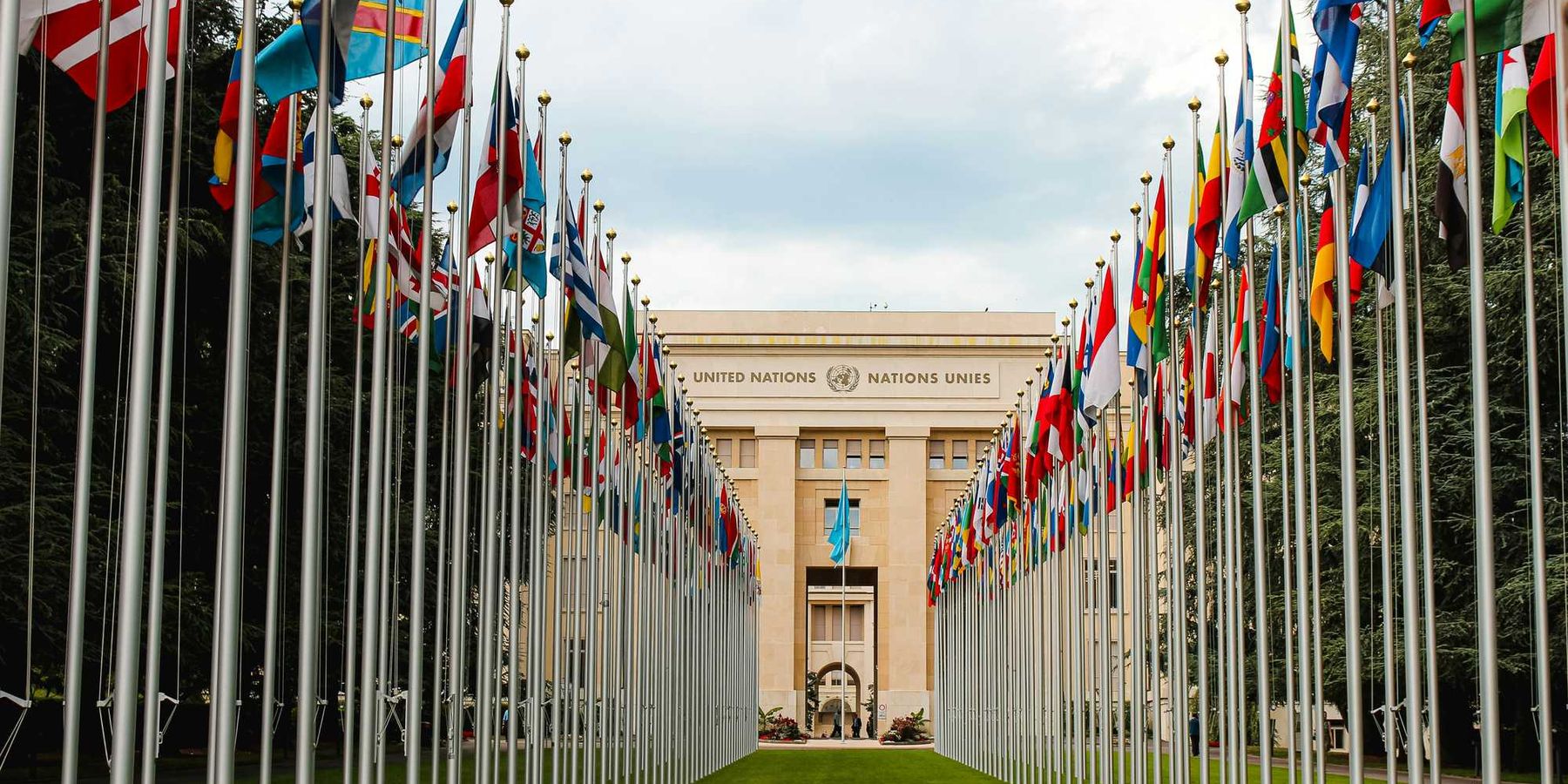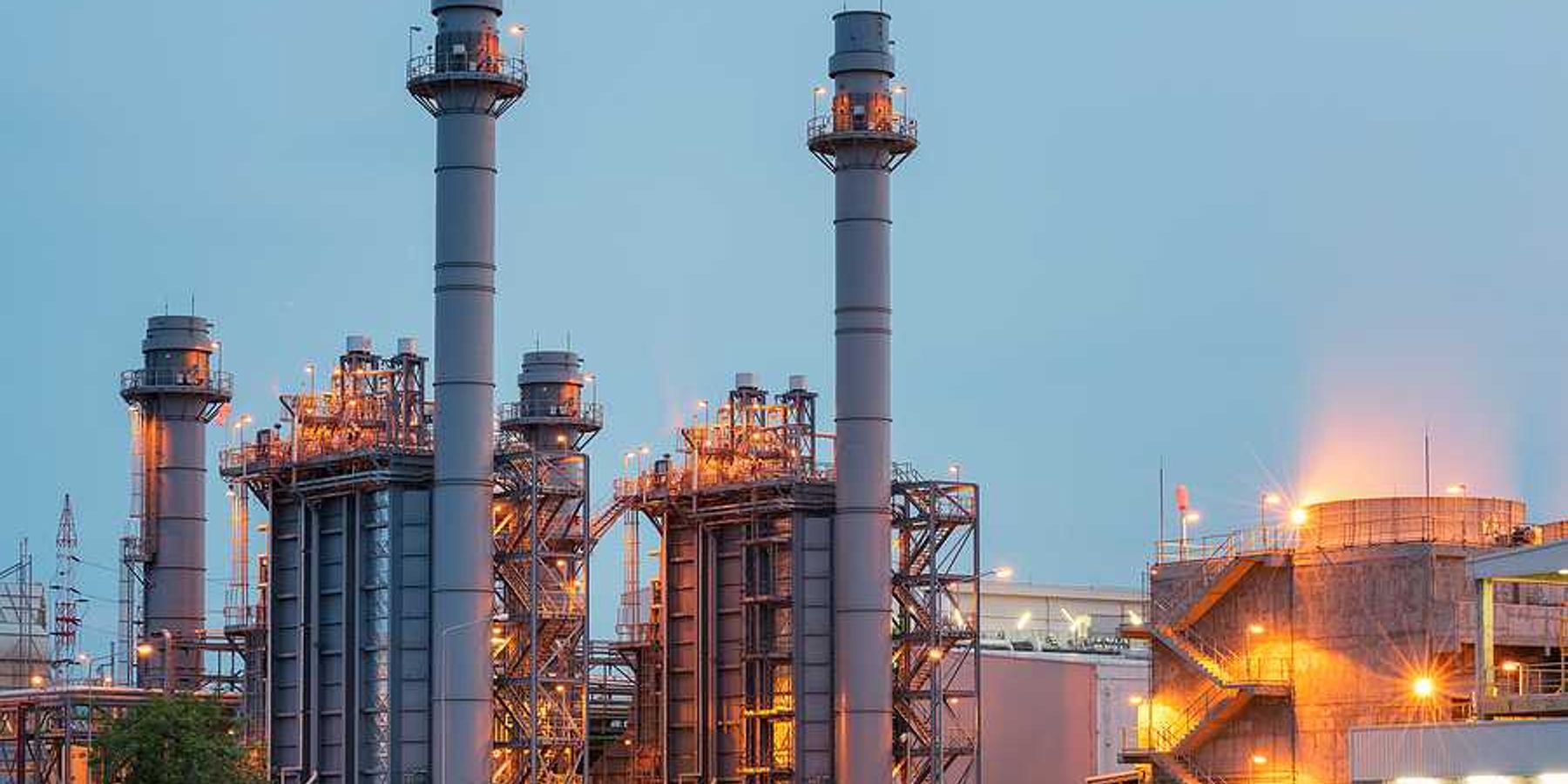facebook.com
"No evidence" that fracking can be done without threatening human health: Report
A review by doctors and scientists of more than 1,700 studies concludes that the industry poses a threat to air, water, climate, and human health.
A group of doctors and scientists have released a report highlighting that 84 percent of studies published from 2009-2015 on the health impacts of fracking conclude the industry causes harm to human health.
The report, published by two groups, Physicians for Social Responsibility and Concerned Health Professionals of New York, sites an earlier literature review that found 69 percent of studies on water quality during the same time period found evidence of or potential for fracking-associated water contamination, and 87 percent of studies on air quality found "significant air pollutant emissions" associated with the industry.
The new report looks at 1,778 articles from peer-reviewed medical or scientific journals, investigative reports by journalists, and reports from government agencies on fracking. Fracking is another name for hydraulic fracturing, which is a process of extracting natural oil and gas from the Earth by drilling deep wells and injecting liquid at high pressure.
"When we first started issuing this report in 2014, we predicted we'd eventually see health impacts based on what we saw happening to air and water," Sandra Steingraber, a professor of Environmental Studies and Sciences at Ithaca College and one of the lead authors of the study, told EHN. "Now we're beginning to see actual evidence of human harm."
Other recent literature reviews have also found links between fracking and a range of health effects including preterm births, high-risk pregnancies, asthma, migraine headaches, fatigue, nasal and sinus symptoms, and skin disorders.
The new report also examines studies on the natural gas industry's impact on climate change, and finds that due to methane leaks, natural gas extraction could be contributing to global warming even more than coal.
"It's now clear that swapping out coal plants for natural gas is at best a lateral move," Steinraber said. "And it's beginning to look like it might even be more like getting out of the frying pan and into the fire."
Steingraber, a member of Concerned Health Professionals of New York, said that in 2014 there were only 400 studies that met the criteria for the report.
"The state of New York banned fracking in 2014 on the basis of those 400 studies," she said. "As of April, there were 1,778 studies. So we have more than 4 times the amount of evidence as we did then, and the evidence that fracking cannot be done safely has only been reinforced by the new literature."
About 20 percent (355) of the studies evaluated in the report were published in 2018. An analysis of recent data conducted by the environmental advocacy group FracTracker found that 90 percent of studies published from 2016-2018 on the health impacts of fracking found a positive association with harm or potential harm.
“Literally in our backyards”
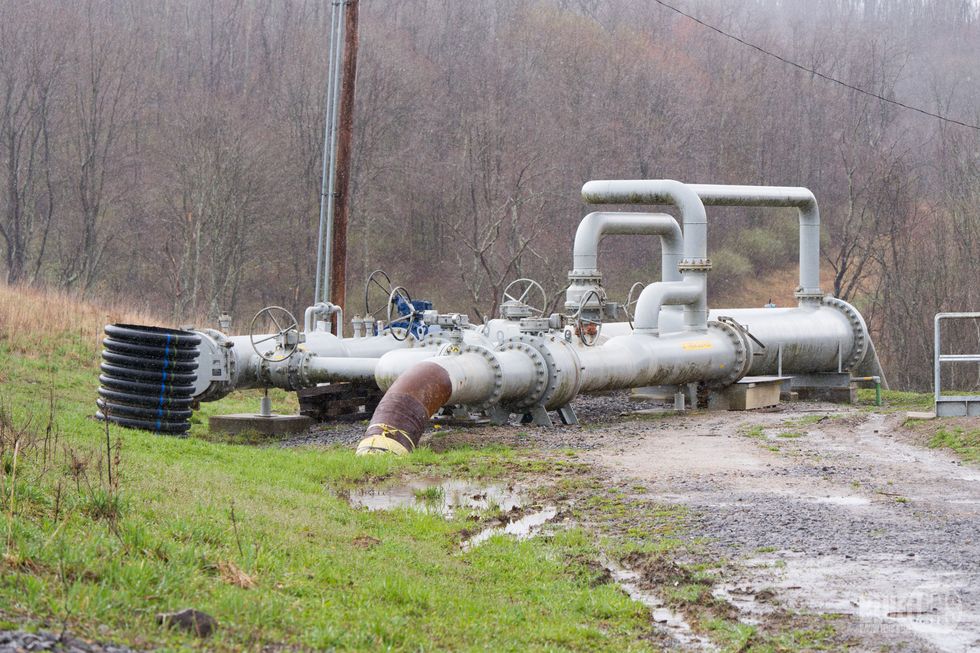
Credit: Mark Dixon/Flickr
Meanwhile, industry officials maintain that the practice is safe.
Last week, more than 100 groups, 800 individual Pennsylvania residents, and a few celebrities sent a public letter to Gov. Tom Wolf urging the state to investigate potential links between the industry and many cases of rare childhood cancers in Southwestern Pennsylvania, and to stop issuing new drilling permits in the meantime.
In response, the Marcellus Shale Coalition, a pro-industry group, sent the Governor its own letter stating that there are no conclusive links between childhood cancer and fracking, and urging him to "reject [the] ridiculous request" to halt fracking until health impacts can be studied further.
Steingraber pointed out that much of the data included in her organization's new report comes from Pennsylvania, since fracking has been underway in the state for more than a decade and is taking place in more densely populated regions than fracking hubs like Colorado, Wyoming and Texas. Pennsylvania is the country's second-largest natural gas producer behind Texas.
"What makes fracking different from any other industry I've studied in public health is that there's no industrial zone," she said. "It's taking place literally in our backyards, and unfortunately some of the best evidence for both polluting emissions and emerging health crises is coming out of Southwestern Pennsylvania."
Representatives from Physicians for Social Responsibility and Concerned Health Professionals of New York traveled to Harrisburg today to present their findings to Pennsylvania lawmakers.
Steingraber will be among them, and said she hopes to draw attention to Wolf's recent support for a full ban on fracking in the Delaware River Basin on the eastern side of the state.
"Gov. Wolf's support of a fracking ban in the Delaware River Basin is essentially an admission that fracking is inherently dangerous," Steingraber said. "I give him credit for that wise decision, but kids in Southwestern Pennsylvania are supposed to have the same rights as kids in the eastern part of the state."
"If fracking is too dangerous for the Delaware River Basin," she added, "it's too dangerous for anyone's river basin."
Editor's note: This story has been updated to reflect where the original data came from for the new report.
25 zones along the proposed Shell Falcon Pipeline are at risk of explosions due to landslides
A landslide caused a natural gas pipeline 35 miles west of Pittsburgh to explode on Monday. It wasn't an isolated incident.
PITTSBURGH—Shell Pipeline Company has identified 25 locations that are prone to landslides in or near the route of its proposed Falcon Ethane Pipeline through Pennsylvania, Ohio, and West Virginia. Fourteen of those locations are in Southwestern Pennsylvania.
The Falcon Pipeline is just one piece of a massive network of unconventional oil and gas-related infrastructure being built by Shell and its affiliates and business partners in Pennsylvania with the aim of turning the region into a new petrochemical hub. The development has elicited concern from researchers, residents and environmental groups about the increased risk of explosions and spills, as well as the cumulative impact on air and water quality in the region.
Two of the sites identified by Shell as being prone to landslides along the proposed Falcon Pipeline route are in Allegheny County. The other 12 sites are in Beaver County—35 miles west of Pittsburgh—where on Monday a natural gas pipeline not affiliated with Shell exploded, destroying one home, two garages, a barn, and several vehicles. The explosion and subsequent fire didn't result in any serious injuries, but it forced the evacuation of 25 homes, shut down the interstate, and caused the local school district to close for the day.
The explosion, in a brand new section of Energy Transfer Partners' Rover Pipeline, is being attributed to a landslide following heavy rains over the weekend. This isn't the first time a landslide has caused a natural gas pipeline to explode: In June, landslides resulted in the rupture and explosion of a TransCanada natural gas pipeline in Marshall County, West Virginia.
Shell is currently constructing a multi-billion dollar ethane cracker plant in Potter Township, just five miles from the site of the Energy Transfer Pipeline explosion. Shell's proposed Falcon Pipeline would transport large volumes of natural gas and liquids to the ethane cracker plant to be converted into ethylene for use in plastics manufacturing.
In its permit application, Shell identified "landslide risk" areas along the proposed route for the Falcon Pipeline. The FracTracker Alliance, a Pittsburgh-based oil and gas industry watchdog group, has mapped those locations. In Pennsylvania, the 14 landslide-prone areas on or near the proposed pipeline route total 2.1 miles.
In Potter Township, where the ethane cracker plant is under construction, the Falcon Pipeline would cut through an approximately half-mile long landslide risk zone located about 800 to 1,000 feet from neighborhoods with 20 to 30 homes in them. One house in Potter Township sits 665 feet from a portion of the proposed pipeline route identified as being in a landslide risk zone.
In Independence Township, one home sits 396 feet from a landslide risk zone along the proposed pipeline route.
"According to our analysis, the blast radius for the Falcon pipeline there is about 900 feet, so if there were an accident, all those homes are in the impact radius near the landslide area," Kirk Jalbert, a science and technology researcher and assistant professor at Arizona State University, told EHN. Jalbert previously served on the Pennsylvania Department of Environmental Protection's (DEP) Environmental Justice Advisory Board, and as Manager of Community-Based Research and Engagement for the FracTracker Alliance.
The Pennsylvania DEP found 101 technical deficiencies in Shell's initial Falcon Pipeline application, and Shell has since issued a response to those citations.
"It's possible there are sections of the proposed pipeline route that were moved away from landslide areas in Shell's responses," Jalbert noted, "but it's unlikely that all of them were moved."
Shell did not respond to inquiries about whether the proposed pipeline route has been changed to avoid landslide risk areas.
“I hope this explosion serves as a wake-up call”
On September 6—four days before the Energy Transfer Partners pipeline explosion—local environmental groups held a rally at the Pittsburgh office of the Pennsylvania DEP to urge the agency to deny Shell Pipeline Company's permit application for the Falcon Ethane Pipeline, in part due to concerns over landslide risks.
"We think there are still significant problems with Shell's application for the Falcon pipeline," Matt Mehalik, executive director of environmental advocacy group The Breathe Project, told EHN. "This pipeline would go through a route that's very close to many homes in Southwestern Pennsylvania. I hope this explosion serves as a wake-up call to homeowners about the serious risks associated with Shell's plan."
Record-setting precipitation in 2018 has caused hundreds of landslides across Southwestern Pennsylvania, prompting Allegheny County to seek a disaster declaration from the Federal Emergency Management Agency for emergency funds to help clean up the damage. The county estimated that landslides caused $18 million in damage in 31 municipalities, including Pittsburgh, between February and April.
Climate change is causing more extreme rainfall events across the U.S., resulting in an increase in the frequency and severity of flooding.
"People will say this explosion happened because of unusually heavy rains," Mehalik said, "but if you're building a pipeline that can't withstand five inches of heavy rain over a weekend, something is wrong."
Jalbert emphasized that the Energy Transfer Partners pipeline exploded just a week after being brought online.
"Representatives from oil and gas pipeline companies often say that explosions only happen on old pipelines, and that they're using the most stringent design standards available to build these safe new pipelines," he said. "They can't say that anymore. This pipeline was brand new. Clearly something is wrong with the regulatory review process."
Trump push to shorten gas pipeline reviews may limit public input
Weekend Reader for Sun., Jan. 28
"The State of the Union is the Most Excellent Ever, That I Can Tell You."
On Tuesday, President Donald J. Trump will take the podium to renew the annual American tradition of the State of the Union Address (SOTU). His audience will include both houses of Congress, some special guests, and most of the memberships of the Supreme Court, Cabinet, and the Joint Chiefs of the military.
There's a tradition of Presidential lip service paid to second- and third-tier issues. Environment usually rates a sentence, maybe two:
1) "I'd like to use that Superfund to clean up pollution for a change and not just pay lawyers." (Bill Clinton, 1993)
2) "We have no intention of dismantling the regulatory agencies, especially those necessary to protect environment and assure the public health and safety." (Ronald Reagan, 1981)
3) "Preservation of our environment is not a liberal or conservative challenge, it's common sense," (Reagan in 1984).
4) "Restoring Nature to its natural state is a cause beyond party and beyond factions" (Richard Nixon, 1970).
Clinton, of course, did little to reverse the sputtering failures of Superfund; Reagan's team did a pretty good job of dismantling regulatory agencies -- but 2017 far outpaced his accomplishments; and there was some truth to Reagan's and Nixon's bipartisanism, but that was the 20th century and this isn't.
Tuesday's mystery is whether Trump will go as far as presidents past, or whether he'll do away with environmental lip service entirely. If Trump's Thursday speech at the World Economic Forum in Davos, Switzerland provides a clue, he'll brag about the Administration's regulatory purge as a key to economic growth.
A couple more curiosities: Bill Nye the Science Guy, the owlish nerd who has done yeoman's work battling climate denial, says he'll attend the Address as the guest of a well-heeled climate denier. Jim Bridenstine is a two-term congressman from Tulsa -- a protege and soulmate of uber-denier Senator Jim Inhofe. Bridenstine has a lifetime score of 3% from the League of Conservation Voters and pulled a goose egg for 2016. In other words, he's the perfect guy to run Donald Trump's NASA. He's an enthusiast of missions to Mars and privatization of much of the agency's mission. Bridenstine's nomination hit a snag last year due to bipartisan concern that he has no training or credentials in science or engineering. There's also widespread concern that he would zero out NASA's Earth Science budget, including the agency's critical climate change research. Maybe a tongue-lashing from the Science Guy will turn him around.
And finally, there's the Designated Survivor: the one Cabinet member who's sequestered away from the speech in case of disaster. Is this how Ryan Zinke gets to be President? Since the Reagan Administration, at least seven Interior Secretaries have been the SOTU designated survivor. Energy Secretary Rick Perry has four predecessors as the D.S. And while the EPA Administrator is considered to be a Cabinet-level position, it's not included in the official Line of Succession.
So come Wednesday morning, even in the worst case scenario, Scott Pruitt will not be the leader of the free world.
Top Weekend News
New research with dire implications for corals: They actually prefer the taste of plastics.
EHN Senior Editor Brian Bienkowski on a groundbreaking report: The pervasive presence of pesticides in Great Lakes freshwater tributaries.
Huff Post launched a major, must-read series on "Dirty Air" around the world.
In an interview to be broadcast Sunday on England's ITV, President Trump went full denial. The AP's Seth Borenstein contacted ten climate scientists for a point-by-point refutation of what the President pretty much said was Fake Climate Science.
Tom Henry reports on moves by Ohio-based FirstEnergy's indications that it may dramatically shrink both its nuclear and coal fleets.
Trumpweek: Rollbacks and denial
Pruitt meets the press -- not. A barnstorming tour of the states by EPA Administrator Scott Pruitt seems to be missing a traditional element: Contact with the press and general public.
A rare un-rollback: Scott Pruitt's EPA may keep restrictions on the controversial Pebble Mine in Alaska. The massive gold and copper mining project could jeopardize the prolific Bristol Bay fishery. (E&E)
Tim Cama reports on EPA moves to roll back "major" air pollution rules. (The Hill)
High Country News's Elizabeth Shogren reports that former wildlife officials from the Nixon to the Obama Administration oppose Trump's rollbacks on migratory bird protections.
Opinions and Editorials
In a searing piece in the New Yorker, Elizabeth Kolbert tears into Interior Secretary Ryan Zinke and the "damage done" to public lands.
The Daily Star, the largest English-language paper in Bangladesh, laments the national disinterest in environmental protection.
Canada's most influential newspaper, The Globe and Mail, goes after the Trudeau government on reduced science funding.
Of all the floods in all the cities of the world, it had to be Paris. On CNN.com, historian Jeffrey Jackson looks at why the extreme flooding in Paris should be a cautionary climate tale.
NYT op-ed from a Pacific island facing inundation from high seas.
One worthwhile video
A fox and a snowy owl met on a quiet winter night by the marina in Cobourg, Ontario. A security camera captured their dance.
As EHN executive director Douglas Fischer noted, the interaction is Harry Potteresque: While the world sleeps, magic is happening just outside the window.
Read Douglas' take on the story here. Or check out the town's Facebook feed, where the video has been viewed some 200,000 times.

